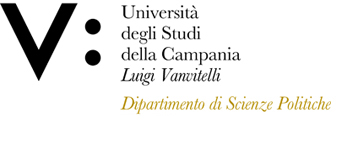Adriano COZZOLINO
Insegnamento di GLOBAL POLITICS
Corso di laurea magistrale in RELAZIONI E ORGANIZZAZIONI INTERNAZIONALI
SSD: SPS/04
CFU: 10,00
ORE PER UNITÀ DIDATTICA: 60,00
Periodo di Erogazione: Secondo Semestre
Italiano
| Lingua di insegnamento | INGLESE |
| Contenuti | L’insegnamento in lingua inglese di Global Politics intende fornire agli studenti una mappatura delle principali teorie di Relazioni Internazionali, e al contempo una conoscenza delle trasformazioni politiche che hanno interessato l’ordine internazionale liberale e le sue molteplici crisi. Attraverso una prospettiva di lunga durata e una solida analisi delle principali teorie delle Relazioni Internazionali, verranno ricostruite le tappe che hanno condotto all’affermazione e poi al declino dell’Occidente, evidenziando sia le cause della crisi dell’egemonia statunitense sia i rischi e le sfide posti dall’emergere di potenze alternative, quali Russia e Cina. |
| Testi di riferimento | Da Theories of International Relations (Bloomsbury, Sixth Edition 2022), capitoli: 1, 2, 3, 4, 5, 6, 8, 10, 11 |
| Obiettivi formativi | Tenuto conto dei contenuti del corso, sono di seguito indicati i descrittori dei risultati di apprendimento previsti. |
| Prerequisiti | Non sono previste propedeuticità. Si richiede che gli studenti abbiano una conoscenza basilare dei concetti fondamentali e delle principali prospettive teoriche delle Relazioni Internazionali. |
| Metodologie didattiche | L’insegnamento si articola in lezioni frontali e interattive che possono prevedere l’utilizzo di supporti informatici o materiali multimediali. Sono previsti esercizi in classe, lavori di gruppo, creazione di elaborati |
| Metodi di valutazione | L’esame consisterà in una prova orale volta ad accertare l’apprendimento dei contenuti dell’insegnamento e dei libri di testo. Il punteggio della prova è attribuito mediante un voto espresso in trentesimi. |
| Altre informazioni | La frequenza non è obbligatoria, ma è altamente consigliata. Ulteriore materiale didattico potrà essere fornito nel corso delle lezioni agli studenti frequentanti. |
| Programma del corso | Il programma di insegnamento si articola nelle seguenti sezioni: |
English
| Teaching language | English |
| Contents | The course of Global Politics (in English) aims at providing students with a mapping of the main theories of International Relations, and at the same time the full understanding of the political transformations that have affected the international liberal order and its multiple crises. Through a long-term perspective and a solid analysis of the main theories of International Relations, the stages that led to the rise and then the decline of the West will be reconstructed, highlighting both the causes of the crisis of US hegemony and the risks and challenges posed by the emergence of alternative powers such as Russia and China. |
| Textbook and course materials | From Theories of International Relations (Bloomsbury, Sixth Edition 2022), chapters: 1, 2, 3, 4, 5, 6, 8, 10, 11 |
| Course objectives | Taking into account the course content, the descriptors of the expected learning outcomes are given below. |
| Prerequisites | There are no prerequisites. Students are expected to have a basic knowledge of the fundamental concepts and main theoretical perspectives of International Relations. |
| Teaching methods | Teaching takes the form of face-to-face and interactive lectures, which may include the use of computer aids or multimedia materials. In-class exercises, group work and the creation of papers are planned. |
| Evaluation methods | The examination will consist of an oral interview designed to ascertain whether the course content and textbooks have been learned. The test is marked by a grade expressed in thirtieths. |
| Other information | Attendance is not compulsory but strongly recommended. Additional teaching materials may be provided during the course of the lectures for students who attend. |
| Course Syllabus | The teaching programme is divided into the following sections: |








